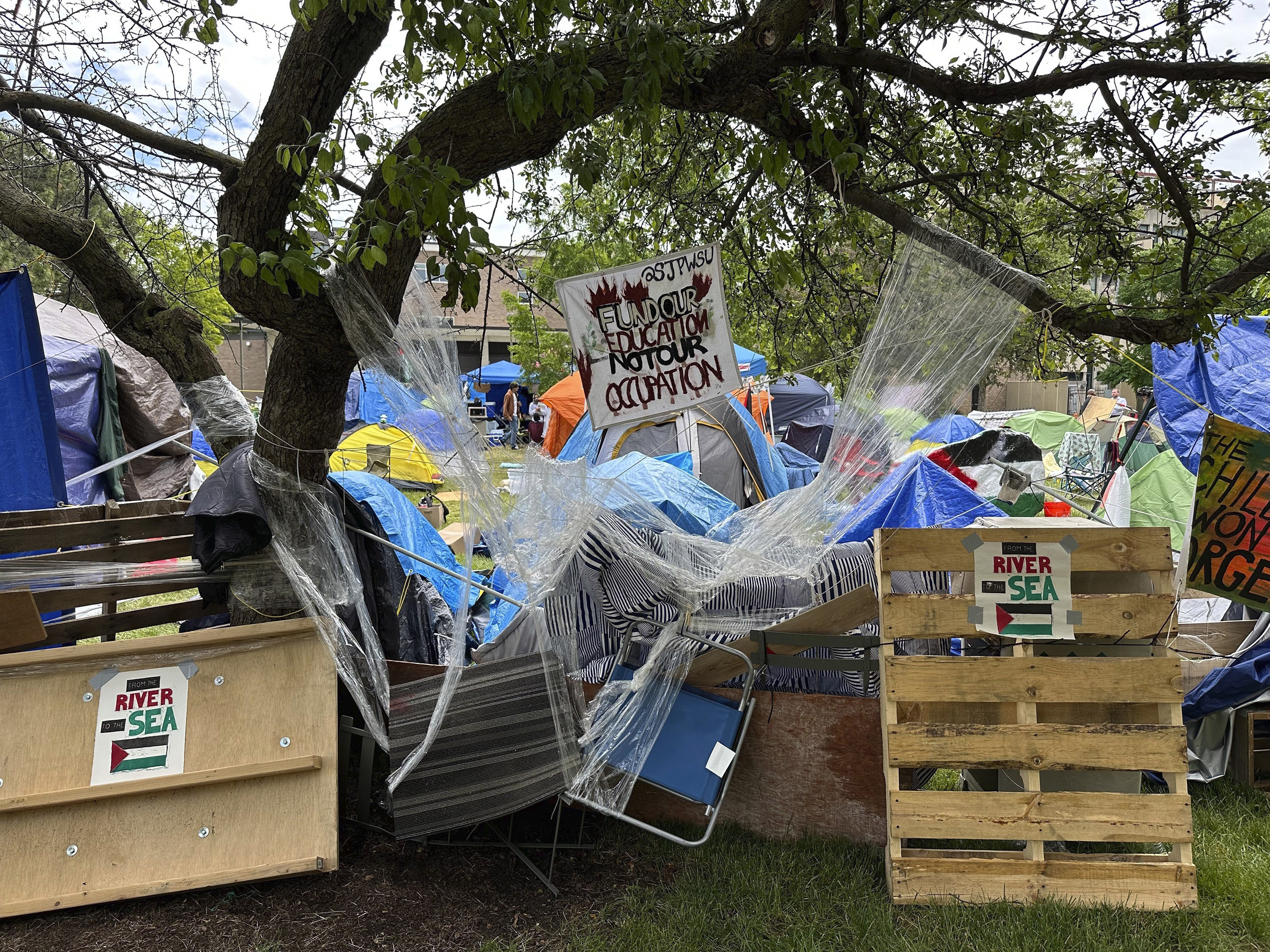President Kimberly Andrews Espy cited health and safety concerns and disruptions to campus operations. Staff were encouraged to work remotely this week, and in-person summer classes were suspended.
"No individual or group is permitted to claim campus property for their own use and deny others access to that property," Espy said.
The camp, she added, "created an environment of exclusion — one in which some members of our campus community felt unwelcome and unable to fully participate in campus life."
Television video showed Wayne State and Detroit police in riot gear tearing down fencing and breaking down tents erected May 23 on green space near the undergraduate library.
The protesters chanted, "There's no riot here, why are you in riot gear?"
Eight people were arrested: six for trespassing, one for resisting and one for assaulting a police officer, Wayne State spokesperson Matt Lockwood said.
Protest camps sprang up across the U.S. and in Europe as students demanded their universities stop doing business with Israel or companies that they say support its war in Gaza. Organizers seek to amplify calls to end Israel's war with Hamas, which they describe as a genocide against the Palestinians.
Wayne State has 16,000 undergraduate students but fewer during the summer term. The protesters have demanded that the school divest from weapons manufacturers supplying Israel, provide a full disclosure of investments and cease delegation trips to Israel.
Wayne State this week posted video of its efforts to invite protesters to private meetings with Espy and other officials if they would dismantle the camp. Lockwood said all were rejected.
U.S. Rep. Rashida Tlaib, a Michigan Democrat, had visited the encampment to offer support to the protesters.
Ali Hassan, who represents WSU Students for Justice in Palestine, told WXYZ-TV this week that he believed the university's shift to remote learning means the administration is taking notice of the student protests.
"The reason that they went remote is because we have put pressure on them," he said.
The University of Michigan in Ann Arbor on May 21 broke up a similar encampment after 30 days.
